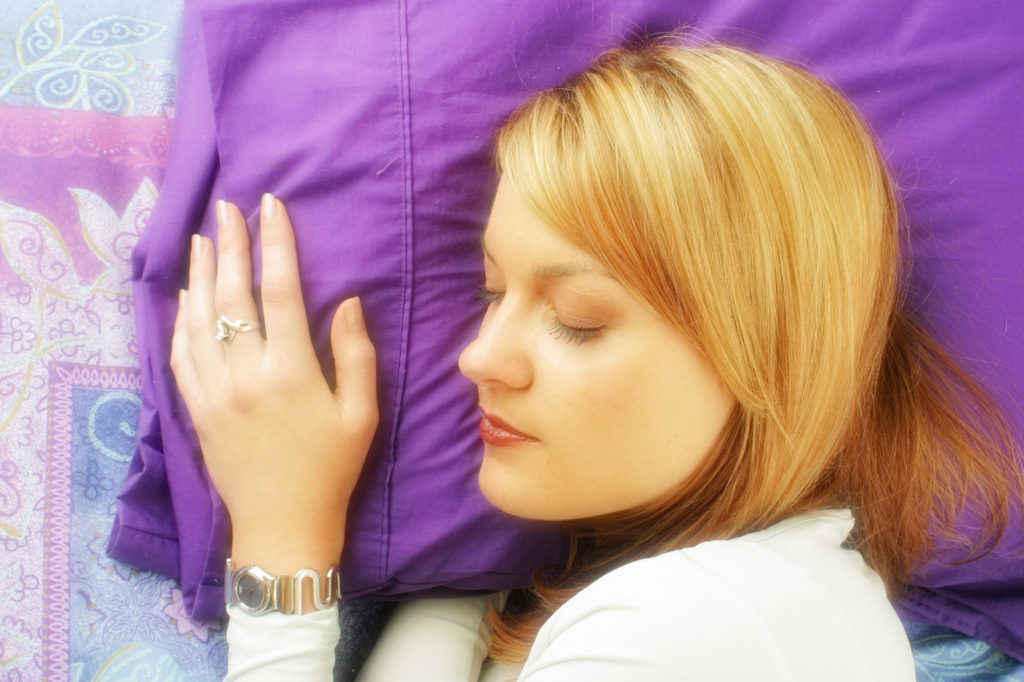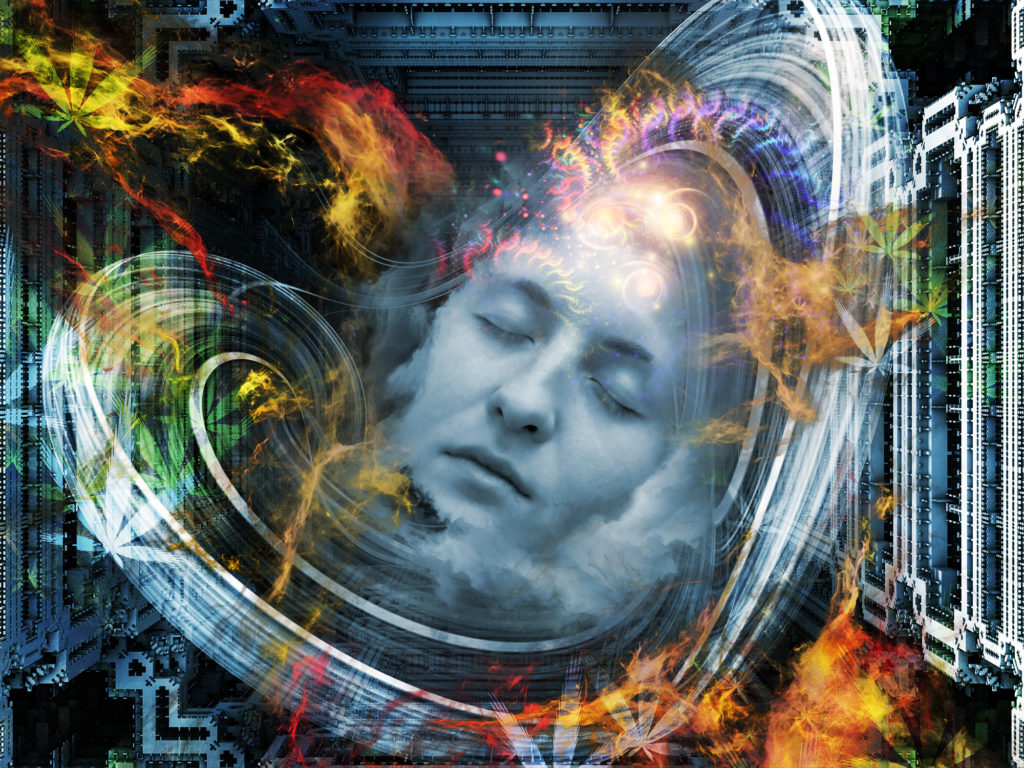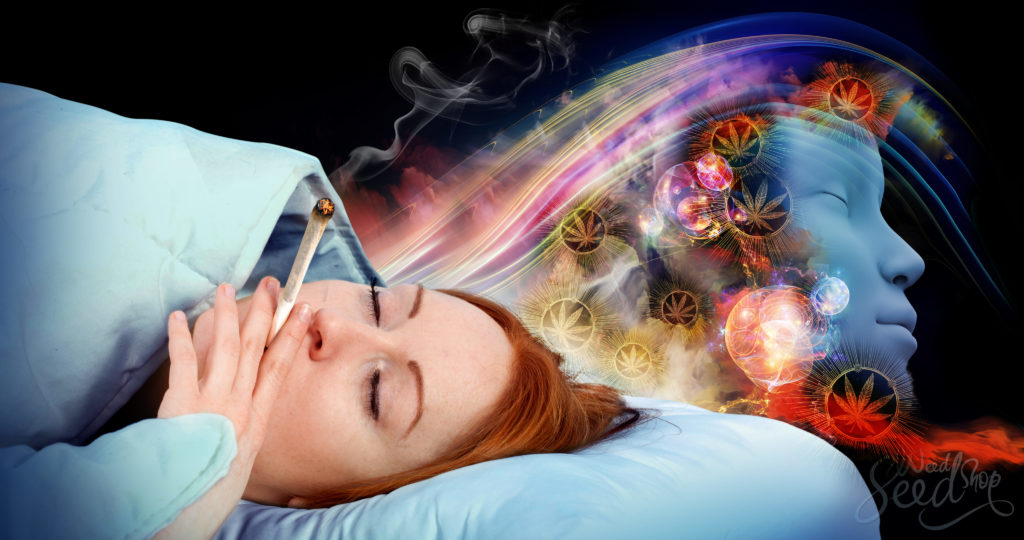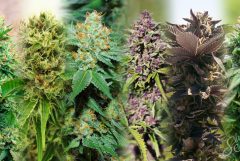Almost every stoner has reported, at some point, the powerful effect that cannabis has had on their ability to recall dreams. But how exactly is cannabis use affecting sleep to bring about this interesting phenomenon? Sleep and memory are two factors that could be hindering your dream recollection, and are both heavily impacted by cannabis use. This article will tell you all about cannabis and its effects on this mysterious visionary experience.
The effect of cannabis use on REM sleep and dreaming has been an interesting topic for researchers and cannabis users alike. Whether by habit or for medicinal reasons, a lot of people use weed before bed, and the effects it has on sleep are varied and interesting.
Even though weed has sedative properties and is often used as a treatment for insomnia, some report difficulties getting to sleep after cannabis use. And almost all stoners have reported a decrease in their ability to recall their dreams during periods of intense cannabis use, especially if they use before sleep. So what’s the score with weed and dreaming? This article is going to teach you the kind of effect cannabis use has on sleep and especially dreaming. If you’re at all the visionary kind, then this is just the read for you.

How THC affects REM sleep
The sleep cycle of the human being goes through many stages, but there is one in particular in which dreaming takes place. It is in the earlier stages of sleep, mainly just before entering deep sleep and just after coming out of deep sleep, that dreaming occurs. This stage of sleep is called REM (for rapid eye movement). Just because you don’t recall one of your dreams, doesn’t mean that REM didn’t occur. The lucidity with which we remember a dream experience is dependent on many factors, and THC is one of them.
Studies have shown that THC affects the sleep cycle by reducing both the duration of the REM stage and the intensity of the eye movement activity during that stage. Therefore, those who smoke before sleeping usually require more sleep, because a certain amount of REM sleep is needed for the person to feel rested and refreshed. However, THC use also affects the quality of REM sleep when it occurs, by reducing the intensity of the rapid eye movements themselves. The more lucid you become in a dream, the more intensely the rapid eye movement occurs, causing you to be more conscious of your dream and to recall it easier.
On the contrary to this, CBD is suggested to encourage lucidity or wakefulness in dreams. This could account for the varying reactions to cannabis and its effects on sleep. At the end of the day, just like any other psychoactive compound or medicine, each body is affected in a different way depending on its make up, and there is no exception here. Having said that, almost all cannabis users report a decrease in their dream recollection after using, especially those who have been experiencing nightmares.
THC and the memory factor
Anyone who has ever dreamed before knows that immediately upon waking up, the memory begins to fade. For those that are particularly interested in their dreams, it becomes important to document what happened as soon after waking up as possible to ensure the memory of all the finer details. Even those that are not cannabis users experience this sudden onslaught of amnesia, despite having just experienced something as real as “waking life”. And then there’s always the effect that THC has on short term memory.
There is a known and studied effect on the brain’s ability to record short term memories when under the effect of cannabis, and this undoubtedly has an effect on the ability to recall dreams. In this respect, cannabis is really working against the dreaming experience, especially for those of us who quite enjoy it. Although this theory hasn’t been studied, it is entirely possible that despite being able to reach wakefulness in REM sleep, it can’t be recalled because of a memory malfunction.
If you’re the kind of person that likes dreaming, then cannabis use might become a hurdle. It’s undeniable that cannabis use makes it harder to achieve the kind of wakefulness in dreams that visionaries experience because of the way it affects sleep and memory.

The REM Rebound
The REM rebound is an interesting phenomenon that occurs not only with discontinued cannabis use, but with other substances such as alcohol and sleep medication. If you decide to stop using cannabis, you can expect to experience what feels like a super human ability to be awake in your dreams. This is the number one symptom of the REM rebound. Almost everyone who decides to take a tolerance break or even quit cannabis use reports an abnormal intensification of REM sleep, especially in the form of nightmares. Sometimes, this abnormally intense dreaming experience can last for months after discontinued use.
The point is that the human body (and mind) requires a certain amount of REM sleep to feel rested and well. If it has gone a long time without that, then it is expected that in order to replenish itself, it’s going to unravel all that it has been holding on to. Even those that have been sleep deprived can experience an REM rebound because of the body’s desire to regain some of that restedness. If you’re the visionary kind, this can be quite an enlightening experience, but if you kind of hate dreaming, this can be a hurdle to overcome when quitting cannabis.
Ways to have your cake and eat it too
Well, some of us want to be able to use cannabis and have a healthy dreaming life, too, and with patience you can train yourself to have your cake and eat it too. The truth is that wakefulness in dreams is really just about wakefulness, and you can practice that even though you use cannabis.
The first step is mindfulness. The more mindful you become throughout your day, the more you have trained yourself to stay alert even during REM sleep. You can practice things like meditation or breathing exercises! Some studies have shown that by keeping the eyes closed immediately upon waking up, you are able to use that hypnagogic state to more easily remember your dreams. However, this one takes a lot of practice and a lot of time.
Finally, the best thing you can do is to stop smoking right before bed. Limit your cannabis use after a certain time the same way you would with coffee, and this gives it a chance to wear off before it can have any really heavy effects on your sleep.
Despite all of these suggestions, there is no doubt the effect that cannabis use has on dreaming. For some, this is one of the best things about cannabis, and for others it is a hurdle to overcome. Cannabis use doesn’t just affect how much REM sleep you get, but also the quality of REM sleep you get. This is an important sleep stage for the body, and so it’s important to be nourished with it. For a long, deep sleep, cannabis use could be for you. But if you’re the kind that likes to explore the astral realms, then cannabis could be a hurdle for your wishes to go lucid.









